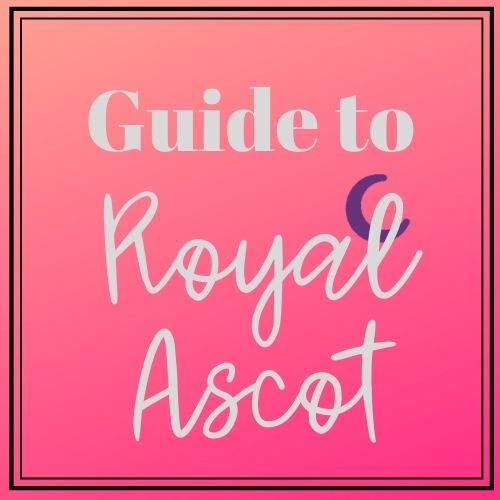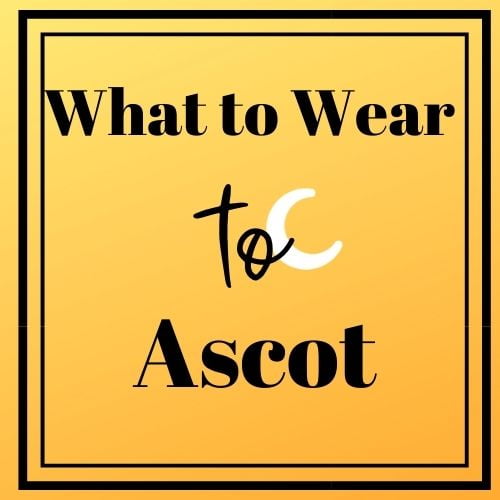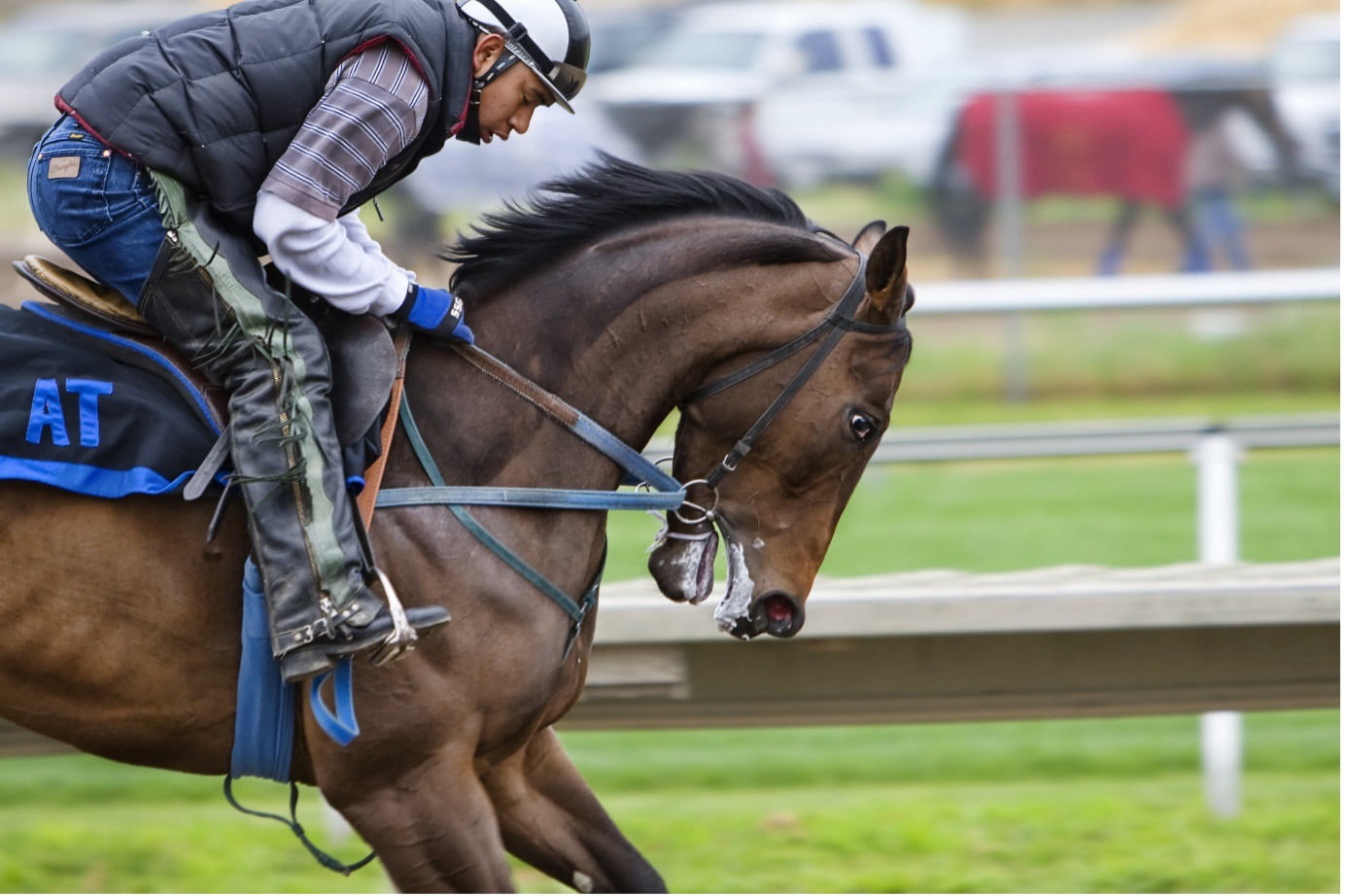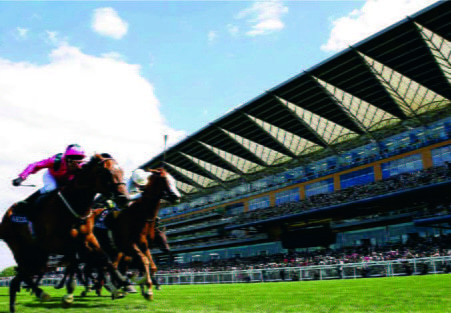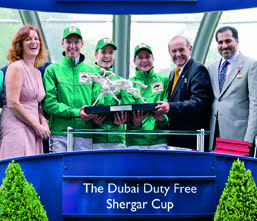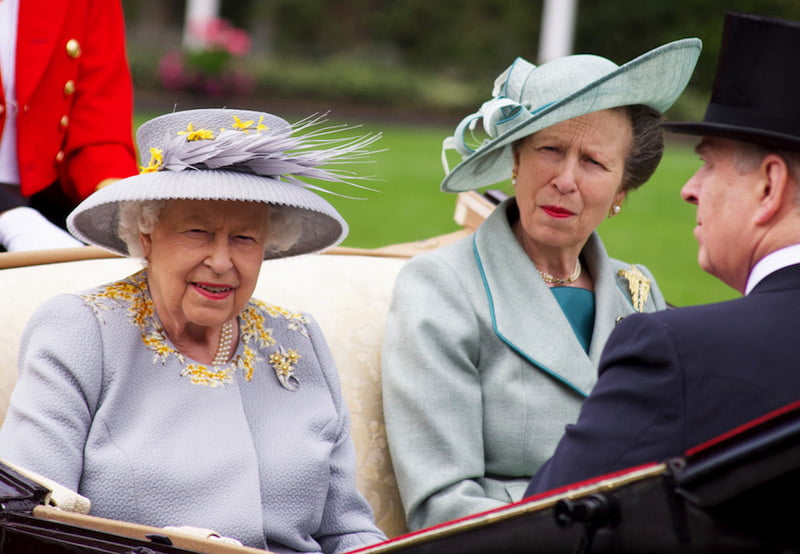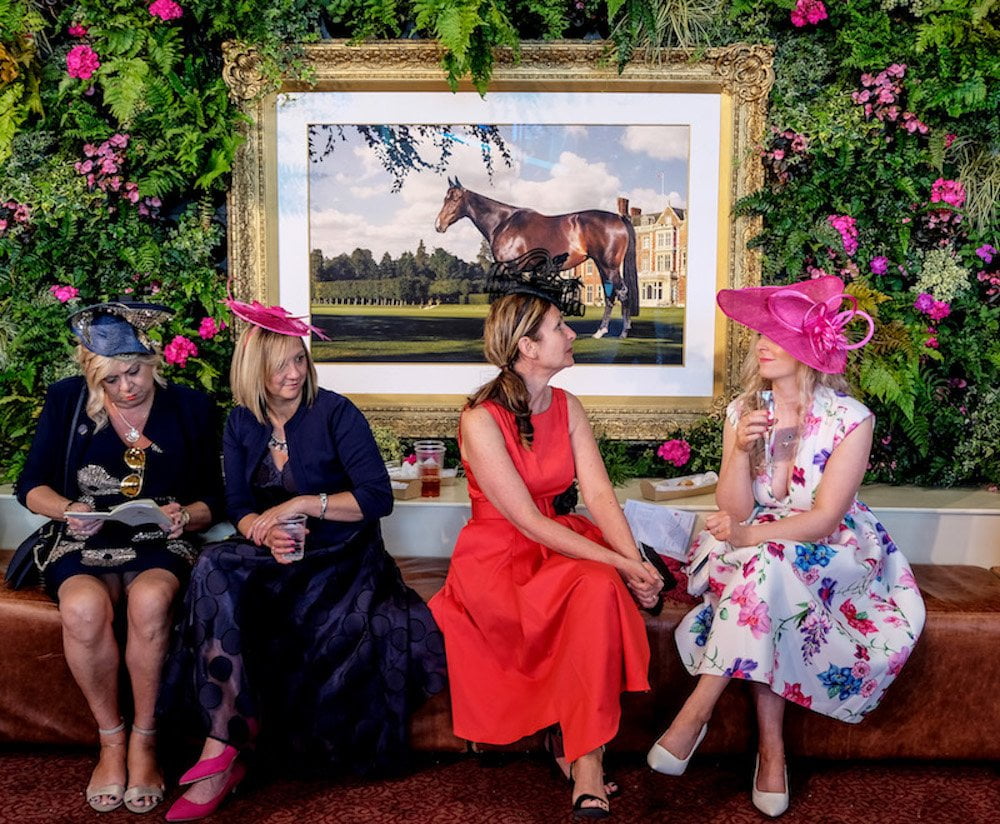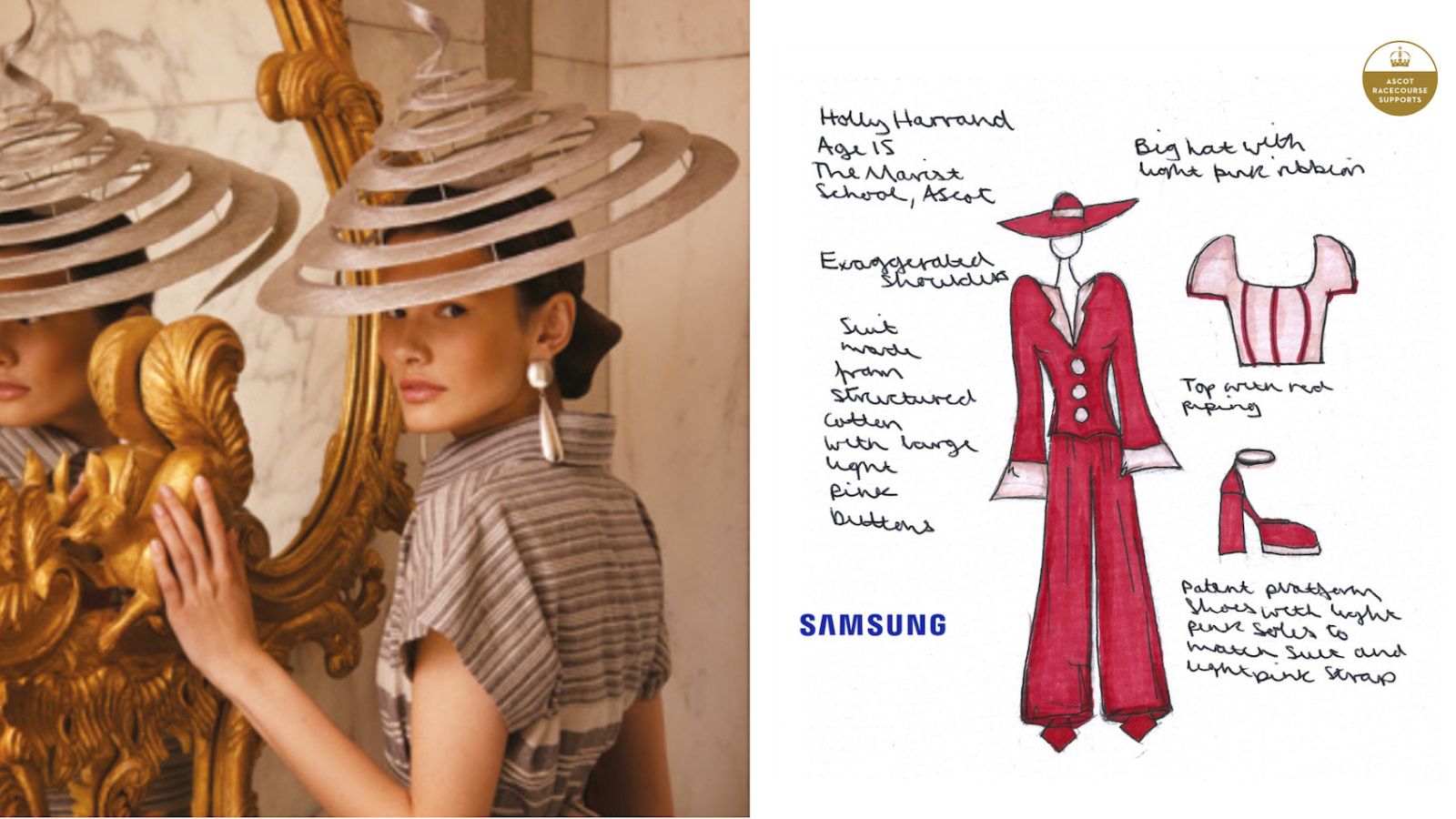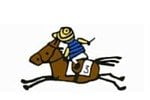Go Racing at Ascot - Home of Royal Ascot
Going to Royal Ascot? Ascot Racecourse is the home of Royal Ascot – one of the most famous race festivals in the world. Read our guide and discover how to get the most out of going to Ascot Races. We’ve got everything you need, and can even help you with What to Wear to Royal Ascot – Royal Ascot Fashion.
Ascot Racecourse - News from Eclipse
Straight from the Horses' Mouth...
Ascot Racecourse News
Course Information
Flat / National Hunt
History
In 1711 Queen Anne declared East Cote near Windsor ideal for “horses to gallop at full stretch”. This began the history of racing at Ascot and Queen Anne is still honoured with the annual Queen Anne Stakes. Royal Ascot stems from the first four-day race meeting held at Ascot in 1768, which became the only race meeting held at the course each year until 1939.
The Gold Cup
The Gold Cup was inaugurated in 1807, starting to shape the Royal meeting into its current format – it remains Ascot’s oldest surviving race.
Dress Code & Royal Connections
The dress code began in the early 19th century under the direction of the famous arbiter of fashion Beau Brummel, a friend of the Prince Regent. Royal Ascot Fashion has always had a very distinct style! Although a Royal Stand dates back to the 1790s, the Royal Enclosure dates to 1822 when King George IV commissioned a two-storey stand and surrounding lawn. Access was by invitation of the King and to this day entry is still by invitation only. The inaugural Royal Procession was in 1825 when King George IV led four other coaches with members of the Royal party up the Straight Mile.
The Act of Enclosure
In 1813 Parliament passed an Act of Enclosure for Ascot Heath, on Crown Estate Land, to be kept and used as a racecourse for the public. The Monarch has always appointed a representative to run the racecourse and in 1901 Lord Churchill became the first official Representative of His Majesty. In 1913 The Ascot Authority (now Ascot Authority (Holdings) Limited) was established, with His Majesty’s Representative becoming Senior Trustee.
Ascot Legends
Legends of the course include Fred Archer, who over 14 years rode 80 winners at Ascot after his first victory there in 1873; Brown Jack who switched from a Jumps career to scoop the 1928 Ascot Stakes followed by six consecutive renewals of the Queen Alexandra Stakes between 1929 and 1934 under top jockey Steve Donoghue (it is inconceivable that any horse will ever again win at seven Royal Meetings); Lester Piggott who rode 116 winners at Royal Ascot between 1952 and 1993, including 11 Gold Cups; Frankie Dettori who in 1996 made racing history when he won all seven races on the card; and Yeats, arguably the greatest stayer of all time, who won four Gold Cups in a row from 2006 to 2009 an unmatched achievement.
Race of the Century
In 1975 Ascot hosted the ‘Race of the Century when Grundy took on Bustino in the King George VI and Queen Elizabeth Stakes for the final challenge of their career rivalry – such was the intensity of the duel, the race time smashed the course record and it remained unbroken until 2010. In 2013, Estimate, owned by Her Majesty The Queen, won the Gold Cup – the only time the race has ever been won by a reigning monarch.
Redevelopment of the Racecourse
Ascot closed for a £200-million redevelopment in 2004, the single biggest investment in British Racing, and was reopened by Her Majesty Queen Elizabeth on 20th June 2006. The Royal Meeting was held at York in the meantime. Royal Ascot is Britain’s most valuable race meeting, with 18 Group races, eight of them Group 1.
Jump Racing at Ascot
Jump racing was introduced at Ascot in 1965 and the track is one of the toughest in Britain with a 73 foot climb from Swinley Bottom at the lowest point, to the Winning Post at the highest point. Jumps legends to have competed at Ascot include Arkle, Desert Orchid, Sprinter Sacre, Kauto Star and Altior.
Important Races/Festivals
- January – Victor Chandler Chase
- February – Ascot Chase CLICK HERE FOR FESTIVAL GUIDE
- May – Victoria Cup
- June – Royal Ascot Festival CLICK HERE FOR FESTIVAL GUIDE
- July – ‘King George’: King George VI And Queen Elizabeth Stakes
- August – Shergar Cup
- October – Challenge Cup; Sun Chariot Stakes; British Champions Day CLICK HERE FOR FESTIVAL GUIDE
- December – Long Walk Hurdle
Directions
Ascot Racecourse, Ascot, Berkshire SL5 7JX.
- Road: From London and the North – M4 Junction 6 onto the A332 Windsor by-pass and follow the signs to Ascot.
- From the West – M4 Junction 10 to the A329 (M) signed to Bracknell and follow the signs to Ascot.
- From the South and East – M3 Junction 3 onto the A332 signed to Bracknell and follow the signs to Ascot.
- From the Midlands – M40 southbound, Junction 4. Take the A404 towards the M4 (Junction 8/9). On the M4 head towards Heathrow / London. Leave M4 at Junction 6 and follow A332 Windsor by-pass to Ascot.
- Rail: Regular services run from London Waterloo, Reading and Guildford. The course is a short walk from the station.
- Website: www.ascot.co.uk
- Telephone: Ticket Sales and General Enquiries 0844 346 3000; Group Tickets 01344 878 536.
What to Wear to Ascot Racecourse
Royal Ascot 2023: Royal Ascot Millinery Collective
Royal Ascot 23: New Lookbook replaces Style Guide
Omar Mansoor’s Royal Ascot 2023 Collection
ROYAL ASCOT EDIT BY FAIRFAX & FAVOR
Royal Ascot Ladies Day 2022
Royal Ascot 2022: Fashion Focus
The Ascot Races Directory - Local Services
Travelling to Ascot Racecourse? Want to know where to stay, where to eat, where to get your hair and nails done? Want to find Royal Ascot Fashion specialists? How about where the best pubs are and the name of a reliable taxi? We can help. Check back frequently – this section is updated on a regular basis.


